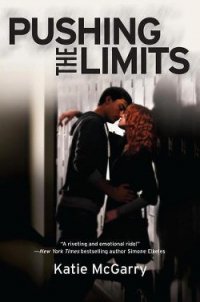Agent X - Boyd Noah (серии книг читать бесплатно .TXT) 📗
“I’m guessing an hour or so.”
“Good, I’ll line up our best available interviewers, and they can take a shot at her.”
“Can my man sit in?”
“The best interviews are done one-on-one, but if she breaks, your man can draft up the formal statement, and then you’ll be able to spin it any way you want.”
“I don’t care who gets credit, I’m just—”
“Please, Al, save it for the press conference. Just have them call my extension when they bring her in—2117.”
Kate sat in her cell at the Correction Treatment Facility in southeast Washington. It was where all female prisoners arrested in the District of Columbia were housed. The cell had a window, but it had been covered over with sheet metal, which made the cement-block cubicle seem that much smaller. She had never experienced claustrophobia, but the moment they shut the door, she felt a sense of mild suffocation, as if the air were being secretly drawn out of the space, or at least the oxygen level was being manipulated to a level that would not allow logical thought.
A concrete bed with a thin mattress, a seatless toilet, and four pale green walls were all she’d seen for the last three days, except for the matronly guard with a lifeless face who brought her meals twice a day.
Kate was well aware that this sensory and social isolation had a purpose. It was to soften her up. But it wasn’t the austere surroundings that were having an effect. It was the three days. Three days without someone rushing to her cell, throwing open the door and telling her that a terrible mistake had been made, something she was waiting for even now.
When arrested, she was confronted with the evidence: the photos, the prints, and the dust on her shoes. She had to admit that if she’d been on the other side of the table, she wouldn’t have been interested in listening to the unprovable denials that she presented in her defense.
All of a sudden, she realized she was crying. Not full sobbing, but she could feel the weight of her tears working their way down her cheeks. She couldn’t remember the last time she cried, probably when her mother had died. She suddenly realized just how scared she was.
Even if she were somehow miraculously cleared of the charges, her career would be destroyed. It had been hanging by a thread ever since her “attempted suicide.” Legally, people could be found not guilty, but within the pedantic confines of the Bureau she would never be judged innocent.
Isolated like this, with no apparent end in sight, she couldn’t help but worry that somehow this case would be proved at trial. The evidence wasn’t airtight, but conversely she had absolutely nothing to refute it. The only thing that was keeping her sane was knowing that Vail was out there somewhere. If anyone could unravel this, it would be him. But there was a very good chance he didn’t even know she’d been arrested. She let out a short, hysterical laugh. It had been part of their plan to keep these arrests out of the public eye. And the last time she saw Vail, she’d sided with the Bureau against him. Then she was told that he had again been stripped of his credentials. Because she’d told him there was no possibility of a personal relationship between them, he’d undoubtedly left Washington by now, on his way to Florida, where no one knew how to contact him. Luke might have been able to track him down, but of course Luke wouldn’t know about her arrest either.
Her thoughts were broken by the sound of the cell door opening. She stood up in anticipation of rescue, but it was the same female guard, her face stony as usual, who set down a metal tray and left.
Assistant United States Attorney Fred Bisset had been put in charge of Kate Bannon’s prosecution the day she was arrested. The case against her had been damning, with one exception: She’d helped gather the evidence against the other spies that had led to her unmasking. But in all probability, Bisset theorized, she was trying to find any evidence against her and destroy it before it came to anyone’s attention. Despite everyone’s best efforts, she had steadfastly maintained her innocence. Then, an hour ago, he’d received a call from the United States Attorney himself, ordering him to get her over to FBI headquarters ASAP.
That was why he was now walking into the J. Edgar Hoover Building with Kate, who was flanked by two U.S. Marshals, one male and one female. Bisset had made the decision that if she were handcuffed and brought into her place of employment, any remaining secrecy about her status would be destroyed. And that would certainly preclude any admissions she might be about to make.
Bisset went to the receptionist, showed his identification, and told the woman that they were expecting him at extension 2117. She dialed the number and said, “Someone will be right down.”
Within a minute Lucas Bursaw got off the freight elevator that was away from the mainstream traffic and held the door open. He was careful not to show any recognition of Kate, hoping to send her the message to do the same. “Mr. Bisset!” he yelled over to the group. “We can take this one!”
They walked to the elevator, and as they got on, Bursaw moved to the back of the car. “We’re going to room 349.” He leaned forward slightly and pointed at the buttons. “Can you press the third floor, please?” As the female marshal hit the button, Bursaw slipped a small, folded piece of paper into the back of Kate’s waistband.
When the door opened on the third floor, Bursaw said, “It’s to the right. Number 349.”
Once the four of them were in the room and seated, Bursaw said, “Can I get anyone anything?” When they declined, he said, “I’ll be standing by in the director’s suite if you need anything. The extension there is 1207.” He wrote down the number and handed it to the AUSA. Then Bursaw closed the door behind him.
Immediately Kate said, “I’d like to use the ladies’ room before we get started.”
Bisset looked at the marshals and pointed at the female. “Okay, but she’ll be going inside with you.”
“Fine.” Kate led the way, and when they got there, the female marshal went inside and checked it for avenues of escape while the male stayed with the prisoner. When she came out, she said, “No other doors or windows.” The male nodded. Once the two women were inside, Kate went into the stall and shut the door. She took out the note and read it: Tell them you’ll talk, but only after you apologize to the director in person. It was in Vail’s handwriting. “About time, bricklayer,” she whispered.
“What?” the female marshal called in to her.
“Sorry, nothing.” She flushed the note down the toilet and came out.
Once they were back in the interview room with Bisset, Kate, for the first time, took a good look at him. He was in his early thirties, and even though he was severely balding, he kept the remaining patches of his hair closely cropped. Without paying much attention to his attempted banter on the way over, she remembered his using the line “I’m no fool—I graduated from Stanford Law School.”
“What time is it, Fred?” she asked.
Though he hadn’t noticed it before, he now detected some warmth in her attractive face. He quickly checked his watch and said, “It’s almost two.”
Kate examined him more closely and decided that anyone who would cut his hair that short, drawing attention to the uncomeliness of male pattern baldness, was someone who probably had an inability to interpret common social cues, especially those of rejection. Book-smart with absolutely no people skills, something she suspected was going to be to her advantage. “I’m sorry, where did you say you went to law school?” She was careful to ask the question with just a hint of sarcasm.
“Stanford. I thought I mentioned that.”
“I guess you did. I’m just a little tired. Bet you were the top of your class.” This time the sarcasm was as obvious as she could make it. She glanced at the two marshals and could see that they were experienced enough in handling prisoners that all conversations around them were no more than white noise.



